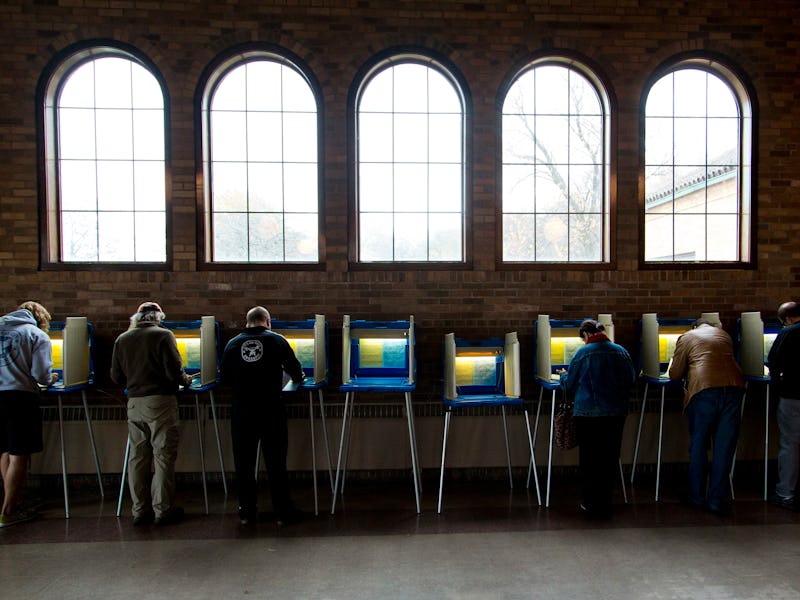"Political Polls are Trash." Science: Actually, No.
It's not the polls' fault.

Here’s a grim prediction: The most common theory about the cause of death for America — after memes and fascism — will be political polls. Long heralded as the most, and perhaps the only, accurate indicator of which way an election will go, the 2016 cycle allegedly blew the whole thing up.
A political scientist’s new predictive model on global democratic elections, published in the journal Science on Thursday, shows that polls still can work. What’s more, they can work with up to 90 percent accuracy. Essentially, polling is still our best option for predicting an election.
If you’re wondering how this model would have held up in the what was arguably the weirdest thing about last year, you don’t have to. Back in September, the American Political Science Association held an annual meeting where Ryan Kennedy, an associate professor of political science at the University of Houston, and his colleagues presented their prediction of the 2016 election outcome. Like most others, they had Hillary Clinton winning — this was when Trump was “kind of in full collapse — in their case, at a seven-percent margin (it ended up being around two).” It’s a common narrative here to talk about where polling went wrong, but Kennedy and his peers weren’t actually wrong — their model just only included national-level polls that predicted the popular vote, which Clinton won.
“We can get 90 percent correct, but that still means we’re going to be wrong one out of 10 times,” Kennedy, the paper’s first author, tells Inverse. “There is no statistical model for the FBI director sending a letter to Congress 11 days before the election.”
Kennedy and his colleagues actually applied two separate models, but the one that proved to be up to 90 percent accurate pulled data from 621 elections across 86 countries between 1945 and 2012. In order for an election to be considered viable, there had to be the possibility that the incumbent would lose — which is to say there had to be an opposition and a supposedly un-rigged system. The researchers also looked at only direct executive actions — no cases where you have a second institutional step between voting and being elected. This sounds like a terrific subtweet at the Electoral College, but the Electoral College doesn’t disqualify U.S. elections because it’s technically supposed to represent the popular vote.
Anyway, that just means the data excluded elections from countries that have minority governments, wherein coalitions emerge that ultimately elect the actual candidate; some Scandinavian nations do this.
The findings also showed that economic indicators — the ones pundits and scholars cite most commonly in these situations tend to be inflation and GDP — were only weakly predictive. Or rather, they were weakly predictive in developing countries. “Economic anxiety” remains more of a Western world thing.
No one ever said polls were blameless, except perhaps Donald Trump when retweeting some rando quoting Breitbart. State-level forecasts are often off, an issue particularly highlighted in 2016. “So we were right, but we were wrong,” Kennedy said. “We got the popular vote correct, but because of the institutions that stand between the popular vote and the actual election outcome, we were wrong.”
This is a very diplomatic way of saying our historical system of democracy has mutated into something that is now eating itself. But in terms of predicting fair elections — both in the United States and around the world — polls are still the best thing we have.
“A lot of people are now very much skeptical of the polls, the president now is saying, ‘oh, the polls that show my low approval rating are the same one that showed I’d lose the election’,” Kennedy said. “We’re really trying to emphasize that if you’re going to evaluate this, you have to have a comparison of what the alternative is. And the alternative is … the gut feelings of paid pundits. And that’s not a replacement.”